特惠-26考研冲刺
特惠-27考研课
双证-在职硕士
免联考-同等学力
复试分数线
26复试全面指导
模拟复试面试
26考研-全套真题
26考研估分
保研-路线图
27考研-智能择校
27考研-英语测评
27考研-新大纲对比
热门-计算机择校
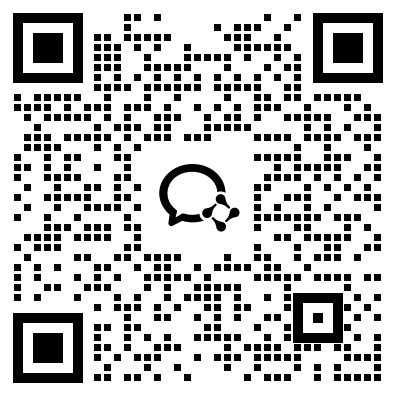
扫码加入训练营
牢记核心词
学习得礼盒
考研历年真题一定要用好,研究好。结合大纲和真题来选择辅导用书是最明智的。本文新东方在线带大家回顾2019考研英语一真题阅读text3参考答案及解析:
Text 3
This year marks exactly two countries since the publication of Frankenstein; or, The Modern Prometheus, by Mary Shelley. Even before the invention of the electric light bulb, the author produced a remarkable work of speculative fiction that would foreshadow many ethical questions to be raised by technologies yet to come.
Today the rapid growth of artificial intelligence (AI) raises fundamental questions:”What is intelligence, identify, or
consciousness? What makes humans humans?”
What is being called artificial general intelligence, machines that would imitate the way humans think, continues to evade scientists. Yet humans remain fascinated by the idea of robots that would look, move, and respond like humans, similar to those recently depicted on popular sci-fi TV series such as “Westworld” and “Humans”.
Just how people think is still far too complex to be understood, let alone reproduced, says David Eagleman, a Stanford University neuroscientist. “We are just in a situation where there are no good theories explaining what consciousnesss actually is and how you could ever build a machine to get there.”
But that doesn’t mean crucial ethical issues involving AI aren’t at hand. The coming use of autonomous vehicles, for example, poses thorny ethical questions. Human drivers sometimes must make split-second decisions. Their reactions may be a complex combination of instant reflexes, input from past driving experiences, and what their eyes and ears tell them in that moment. AI “vision” today is not nearly as sophisticated as that of humans. And to anticipate every imaginable driving situation is a difficult programming problem.
Whenever decisions are based on masses of data, “you quickly get into a lot of ethical questions,” notes Tan Kiat How, chief executive of a Singapore-based agency that is helping the government develop a voluntary code for the ethical use of AI. Along with Singapore, other governments and mega-corporations are beginning to establish their own guidelines. Britain is setting up a data ethics center. India released its AI ethics strategy this spring.
On June 7 Google pledged not to “design or deploy AI” that would cause “overall harm,” or to develop AI-directed weapons or use AI for surveillance that would violate international norms. It also pledged not to deploy AI whose use would violate international laws or human rights.
While the statement is vague, it represents one starting point. So does the idea that decisions made by AI systems should be explainable, transparent, and fair.
To put it another way: How can we make sure that the thinking of intelligent machines reflects humanity’s highest values? Only then will they be useful servants and not Frankenstein’s out-of-control monster.
31. Mary Shelley’s novel Frankenstein is mentioned because it
A. fascinates AI scientists all over the world.
B. has remained popular for as long as 200 years.
C. involves some concerns raised by AI today.
D. has sparked serious ethical controversies.
32. In David Eagleman’s opinion, our current knowledge of consciousness
A. helps explain artificial intelligence.
B. can be misleading to robot making.
C. inspires popular sci-fi TV series.
D. is too limited for us to reproduce it.
33. The solution to the ethical issues brought by autonomous vehicles
A. can hardly ever be found.
B. is still beyond our capacity.
C. causes little public concern.
D. has aroused much curiosity.
34. The author’s attitude toward Google’s pledge is one of
A. affirmation.
B. skepticism.
C. contempt.
D. respect.
35. Which of the following would be the best title for the text?
A. AI’s Future: In the Hands of Tech Giants
B. Frankenstein, the Novel Predicting the Age of AI
C. The Conscience of AI: Complex But Inevitable
D. AI Shall Be Killers Once Out of Control
31-35参考答案及解析:
31.【C】involves some concerns raised by AI today; 通过题干Mary Shelly’s novel Frankenstein及题文同序原则可定位至文章第一段,在该段尾句,fiction that would foreshadow many ethical questions to be raised by technologies yet to come. 此句中 ethical questions 可同义替换题干中的concern。故C为正选。
32.【D】is too limited for us to reproduce it;观点细节题。可通过关键词consciousness 回文定位至原文第2段尾句部分:we are just in a situation where there are no good theories explaining what consciousness actually is and how you could ever build a machine to get there. 可知我们将意识注入机器的能力是有限的,因为没有好的理论可以解释。
33.【B】is still beyond our capacity;根据题干关键词可定位至文章第3段,AI “vision”today is not nearly as sophisticated as that of humans.And to anticipate every imaginable driving situation is a difficult programming problem.该句说到:当下,人工智能的思维还不能达到人类的精密程度,去让机器去预设每一种驾驶情形是一个困难的编程问题。由此说明,去解决人工智能所带来的道德问题,是在人类的能力范围之外的。
34.【A】affirmation;态度题 ,根据题干中的 the author’s attitude ,Google’s pledges.回文定位到第八段,,开头while转折,while the statement is vague, 与vague相反的即是观点,所以表示正向情感的词即是正解。affirmation表示确定。
35.【C】Frankenstein, the Novel predicting the Age of AI;主旨题。本文首段通过引用Mary Shelley的书引出本文要探讨的话题新技术所引发的道德问题。特别是在最后一段指出AI所涉及的道德问题已经触手可及。全篇复现了AI和conscience这两个关键词,所以答案选C
【考研英语】资料这里有↑↑↑
本文关键字: 2019考研英语一真题
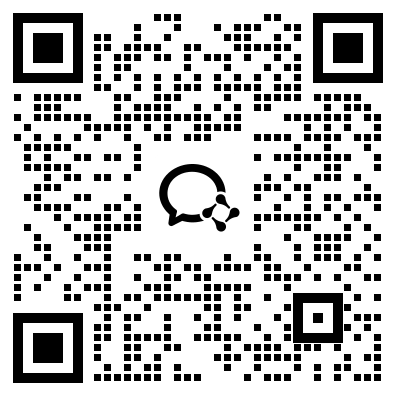
 资料下载
资料下载
2014年-2025年考研历年真题汇总
发布时间:2024-04-25扫码添加【考研班主任】
即可领取资料包
考研大纲PDF电子版下载-历年(附解析)
发布时间:2024-04-25扫码添加【考研班主任】
即可领取资料包
2026年考研政数英备考资料zip压缩包
发布时间:2024-04-25扫码添加【考研班主任】
即可领取资料包
考研英语大纲词汇5500打印版(基础必备)
发布时间:2024-04-25扫码添加【考研班主任】
即可领取资料包
新东方在线考试模拟题【12套】
发布时间:2024-04-25扫码添加【考研班主任】
即可领取资料包
2026年考研专业课知识点总结
发布时间:2024-04-25扫码添加【考研班主任】
即可领取资料包
新东方考研资料下载地址
发布时间:2023-05-17新东方在线考研资料合集
下载方式:微信扫码,获取网盘链接

目录:
1.2013-2023年近10年政数英真题及解析PDF版(新东方)
2.2013-2023年专业课考试历年真题及解析PDF版
3.24考研复习备考资料大合集:大纲+备考资料+词汇书+考前押题+自命题
资料介绍:
1.2013-2023年近10年政数英真题及解析PDF版(新东方)
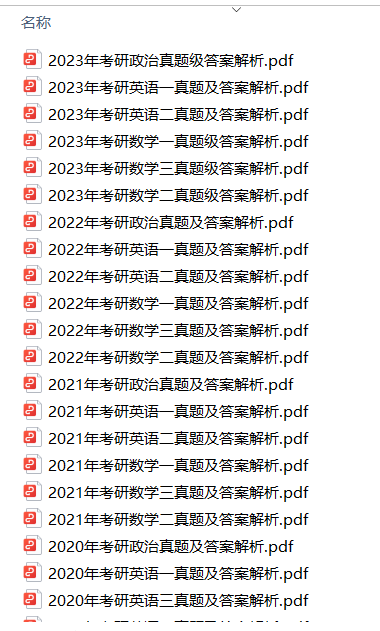 、
、
2.2013-2023年专业课考试历年真题及解析PDF版


3.24考研复习备考资料大合集
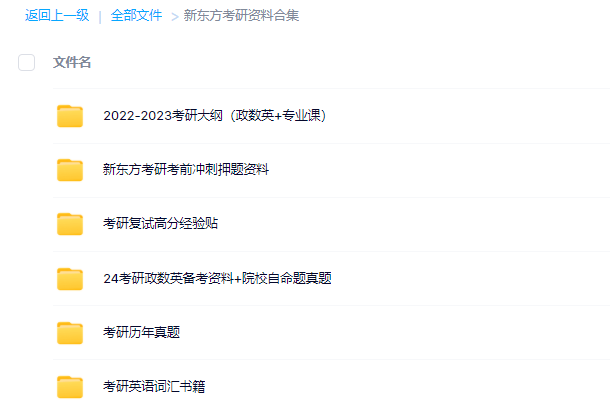
3.24考研复习备考资料:考研大纲
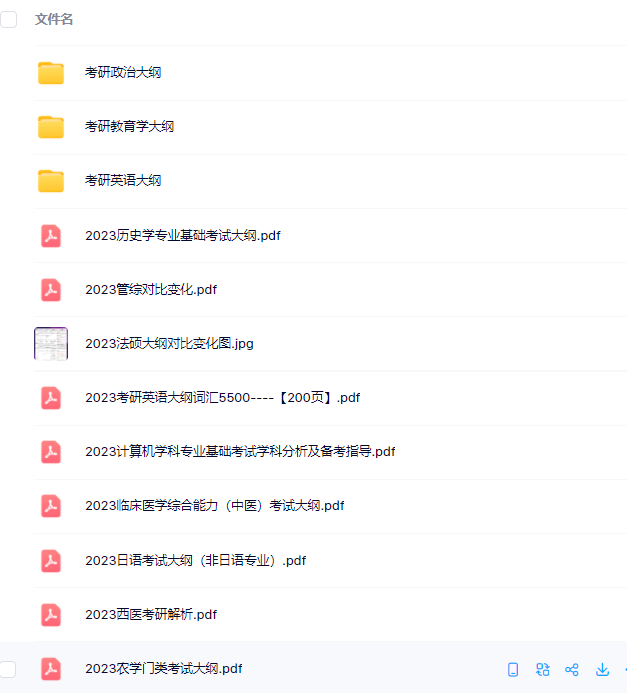
3.24考研复习备考资料:政数英备考资料+自命题真题
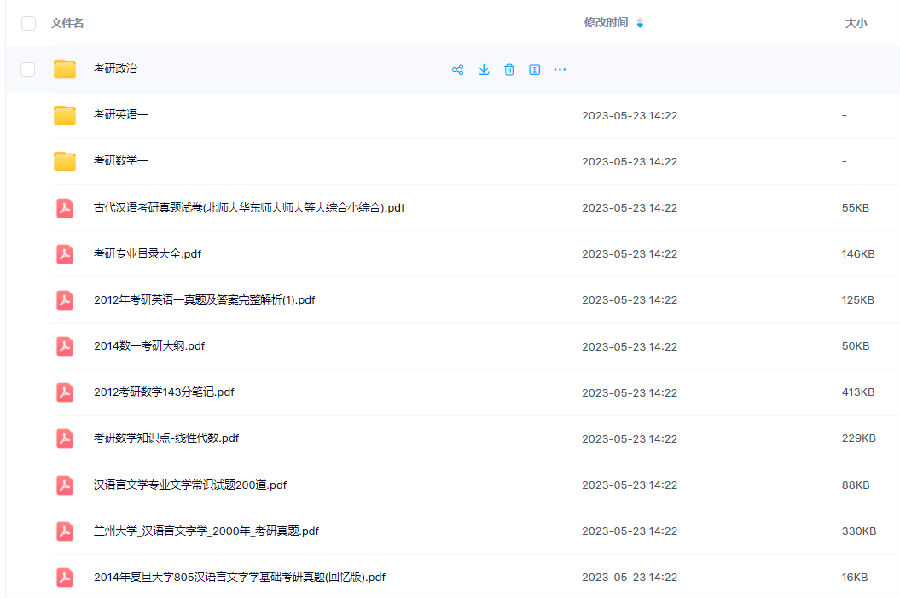
------------------
考研备考过程中,尤其是专业课部分,参考往年的考试真题,对于我们的复习有更好的帮助。北京大学考研真题资料都有哪些?小编为大家进行了汇总。
北京大学考研真题资料-公共课
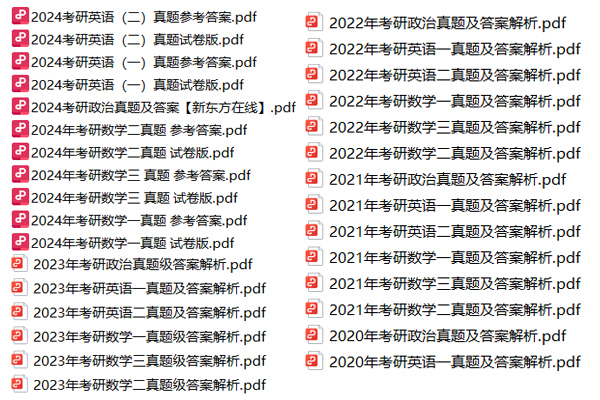
北京大学考研真题资料-专业课


以上就是关于“北京大学考研真题资料下载(历年汇总)”的整理,更多考研资料下载,请关注微信获取下载地址。
2024考研公共课必背知识点汇总
发布时间:2023-01-03扫码添加【考研班主任】
即可领取资料包
2013-2023考研历年真题汇总
发布时间:2023-01-03扫码添加【考研班主任】
即可领取资料包
考研英语大纲词汇(PDF可打印)
发布时间:2023-01-03扫码添加【考研班主任】
即可领取资料包
2024考研专业课知识点总结
发布时间:2023-01-03扫码添加【考研班主任】
即可领取资料包
2023考研政治 内部押题 PDF
发布时间:2022-11-16扫码添加【考研班主任】
即可领取资料包
徐涛:23考研预测六套卷
发布时间:2022-11-16扫码添加【考研班主任】
即可领取资料包
考研政数英冲刺资料最新整理
发布时间:2022-11-16扫码添加【考研班主任】
即可领取资料包
23考研答题卡模板打印版
发布时间:2022-11-16扫码添加【考研班主任】
即可领取资料包
2023考研大纲词汇5500PDF电子版
发布时间:2022-07-28扫码添加【考研班主任】
即可领取资料包
考研历年真题(公共课+专业课)
发布时间:2022-07-28扫码添加【考研班主任】
即可领取资料包
考研英语阅读100篇附解析及答案
发布时间:2022-01-07扫码添加【考研班主任】
即可领取资料包
新东方考研学霸笔记整理(打印版)
发布时间:2022-01-07扫码添加【考研班主任】
即可领取资料包
2001-2021年考研英语真题答案(可打印版)
发布时间:2022-01-07扫码添加【考研班主任】
即可领取资料包
考研英语词汇5500(完整版下载)
发布时间:2022-01-07扫码添加【考研班主任】
即可领取资料包
2022考研政审表模板精选10套
发布时间:2022-01-07扫码添加【考研班主任】
即可领取资料包
历年考研真题及答案 下载
发布时间:2021-12-09扫码添加【考研班主任】
即可领取资料包
考研政审表模板汇总
发布时间:2020-06-17扫码添加【考研班主任】
即可领取资料包
近5年考研英语真题汇总
发布时间:2020-06-17扫码添加【考研班主任】
即可领取资料包
考研英语大纲词汇5500
发布时间:2020-06-17扫码添加【考研班主任】
即可领取资料包
2022考研12大学科专业排名汇总
发布时间:2019-11-21扫码添加【考研班主任】
即可领取资料包
2023考研政治复习备考资料【珍藏版】
发布时间:2019-11-21扫码添加【考研班主任】
即可领取资料包
考研英语万能模板+必备词汇+范文
发布时间:2019-11-21扫码添加【考研班主任】
即可领取资料包
考研数学一、二、三历年真题整理
发布时间:2019-11-21扫码添加【考研班主任】
即可领取资料包

添加班主任领资料
添加考研班主任
免费领取考研历年真题等复习干货资料

 推荐阅读
推荐阅读
为了让考研的同学更高效地复习考研英语,新东方在线考研频道整理了2026考研英语复习四种考研文章展开类型,考研的同学可以了解一下,希望对大家有所帮助。
为了让考研的同学更高效地复习考研英语,新东方在线考研频道整理了2026考研英语复习总分法文章结构分析,考研的同学可以了解一下,希望对大家有所帮助。
为了让考研的同学更高效地复习考研英语,新东方在线考研频道整理了2026考研英语复习议论文行文规则,考研的同学可以了解一下,希望对大家有所帮助。
为了让考研的同学更高效地复习考研英语,新东方在线考研频道整理了2026考研英语复习完型填空主要考查什么,考研的同学可以了解一下,希望对大家有所帮助。
为了让考研的同学更高效地复习考研英语,新东方在线考研频道整理了2026考研英语复习如何复习作文部分,考研的同学可以了解一下,希望对大家有所帮助。

 资料下载
资料下载
扫码添加【考研班主任】
即可领取资料包
扫码添加【考研班主任】
即可领取资料包
扫码添加【考研班主任】
即可领取资料包
扫码添加【考研班主任】
即可领取资料包
扫码添加【考研班主任】
即可领取资料包
扫码添加【考研班主任】
即可领取资料包
新东方在线考研资料合集
下载方式:微信扫码,获取网盘链接

目录:
1.2013-2023年近10年政数英真题及解析PDF版(新东方)
2.2013-2023年专业课考试历年真题及解析PDF版
3.24考研复习备考资料大合集:大纲+备考资料+词汇书+考前押题+自命题
资料介绍:
1.2013-2023年近10年政数英真题及解析PDF版(新东方)
 、
、
2.2013-2023年专业课考试历年真题及解析PDF版


3.24考研复习备考资料大合集

3.24考研复习备考资料:考研大纲

3.24考研复习备考资料:政数英备考资料+自命题真题

------------------
考研备考过程中,尤其是专业课部分,参考往年的考试真题,对于我们的复习有更好的帮助。北京大学考研真题资料都有哪些?小编为大家进行了汇总。
北京大学考研真题资料-公共课

北京大学考研真题资料-专业课


以上就是关于“北京大学考研真题资料下载(历年汇总)”的整理,更多考研资料下载,请关注微信获取下载地址。
扫码添加【考研班主任】
即可领取资料包
扫码添加【考研班主任】
即可领取资料包
扫码添加【考研班主任】
即可领取资料包
扫码添加【考研班主任】
即可领取资料包
扫码添加【考研班主任】
即可领取资料包
扫码添加【考研班主任】
即可领取资料包
扫码添加【考研班主任】
即可领取资料包
扫码添加【考研班主任】
即可领取资料包
扫码添加【考研班主任】
即可领取资料包
扫码添加【考研班主任】
即可领取资料包
扫码添加【考研班主任】
即可领取资料包
扫码添加【考研班主任】
即可领取资料包
扫码添加【考研班主任】
即可领取资料包
扫码添加【考研班主任】
即可领取资料包
扫码添加【考研班主任】
即可领取资料包
扫码添加【考研班主任】
即可领取资料包
扫码添加【考研班主任】
即可领取资料包
扫码添加【考研班主任】
即可领取资料包
扫码添加【考研班主任】
即可领取资料包
扫码添加【考研班主任】
即可领取资料包
扫码添加【考研班主任】
即可领取资料包
扫码添加【考研班主任】
即可领取资料包
扫码添加【考研班主任】
即可领取资料包

 阅读排行榜
阅读排行榜
 相关内容
相关内容